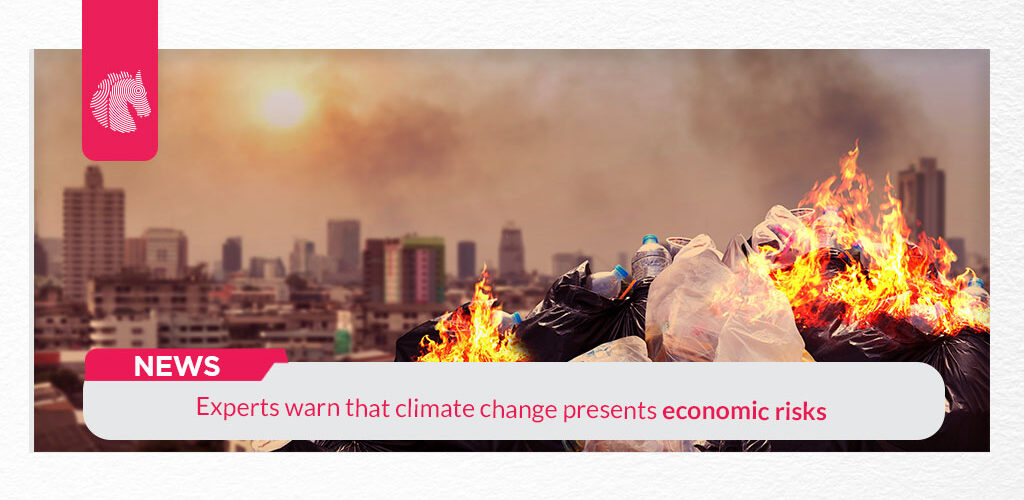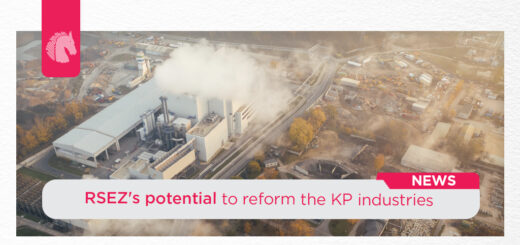Experts warn that climate change presents economic risks

Climate change has evolved from a concept of science fiction to a harsh reality impacting every aspect of the world. Regrettably, Pakistan finds itself among the most vulnerable nations due to a leadership crisis at the state level.
The EcoSummit conference, held in collaboration with SEED Ventures and The Express Tribune, brought together industry leaders to discuss the environmental challenges and their implications for Pakistan’s economy. Amir Paracha, Chairman & CEO of Unilever Pakistan, cautioned that environmental threats, including greenhouse gas emissions, could lead to a loss of 18-20% of Pakistan’s economy by 2050, despite the country contributing less than 1% to global warming.
The discussion highlighted the tendency of developed nations to contribute to the problem rather than providing effective solutions. Despite making promises to mitigate risks, these nations have taken little practical action to address the issue.
Khalid Mahmood, Managing Director and CEO of Getz Pharma, raised concerns about the dangers posed by air and water pollution, as well as the presence of chemicals in contaminated food, which contribute to life-threatening diseases.
Shaista Ayesha, CEO of SEED Ventures, stressed the importance of educating children about these challenges in schools and colleges as a way to combat and overcome the climate crisis. She also emphasized the need for increased research and development (R&D) to identify sustainable alternative solutions that can foster growth.
Both Ayesha and Mahmood suggested that the corporate sector should take the lead in adopting alternative solutions to achieve sustainability in all aspects of life, as conventional remedies are insufficient to mitigate droughts, cyclones, and other environmental disasters worldwide.
Paracha called for a change in mindset and lifestyle to successfully overcome the climate challenges. He highlighted that 51% of people in Pakistan, like 65% of the global population, recognize the presence and impact of climate change. He also pointed out the opportunities that arise from crises, such as the indigenization of raw materials, reducing reliance on imports. Corporate entities in sectors like soft drinks, food, energy, ice cream, and fast-moving consumer goods (FMCG) have embraced initiatives like partial recycling of plastic products, replacement of plastic straws with paper ones (reaching a total of 400 million annually), and transitioning to renewable energy sources. These efforts aim to mitigate global temperature rise and promote sustainability.
The Unilever CEO emphasized that the corporate sector is utilizing waste, including plastic and garbage, to produce recycled goods, turning waste into valuable resources.
Reflecting on Pakistan’s progress from 2005 to 2023, Paracha noted that approximately 48 million people have risen above the poverty line. However, devastating floods in July-August 2022 reversed this progress, pushing 10 million people below the poverty line in just eight weeks. The floods affected nearly one-third of the country, impacting 33 million people and resulting in approximately 1,700 deaths. The economic loss caused by these floods amounted to $30 billion.
During the conference, Zarrar Khuhro, the host, moderator, and journalist, shared an inspiring example of school children aged 6-8 years who produced usable paper from chicken feathers. These children addressed the issues of excessive chicken waste and increased paper consumption, which contribute to deforestation. This initiative was part of a competition among schools with monthly fees of Rs3,000 or less.
Participants emphasized the importance of the corporate sector passing on financial benefits to consumers, enabling them to purchase products produced through sustainable solutions and ensuring the long-term sustainability of these practices.
The Getz Pharma CEO reiterated that climate change ultimately stems from a leadership crisis. It is the responsibility of the state to devise plans and solutions and ensure their implementation, as individuals alone cannot tackle this monumental challenge. Mahmood emphasized the need for leaders to take ownership of the crisis instead of shifting blame onto others.
He further highlighted that Pakistan’s forest cover has dwindled from 25% in 1947 to a mere 2.5% today. Forests, along with the sea, play a vital role in absorbing pollution. However, the release of untreated industrial and effluent water into rivers and seas, coupled with deforestation, has diminished their capacity to absorb pollutants. If this trend continues, their capacities will reach saturation, leading to catastrophic consequences.
The presence of industrial toxins and civic waste in drinking water, vegetables, and animals has contributed to an increase in cancer cases in Pakistan. Compared to smaller economies like Sri Lanka and Jordan, life expectancy in Pakistan is significantly lower. Mahmood cited examples like Ghana, where treating effluent water before releasing it into the sea is prioritized, as smaller countries take action to address these challenges.















